FAQs
❓ Frequently Asked Questions
1. How do I know your products are authentic?
We only offer goods that are 100% authentic and ethically sourced. Every pure Pashmina piece is made from genuine Pashmina wool — never blended or synthetic. If an item is not pure Pashmina, it is sold separately under our Mixed Pashmina collection, where it is clearly labelled as such. Each product undergoes a careful quality check, and many are certified or traceable to specific artisan families or regions. If you're ever unsure, reach out — we're happy to explain the origin of your item.
2. Are your products genuinely handmade?
Yes. Every item on Kashmir & Krafts is handcrafted by skilled artisans in Kashmir. We work directly with local craftspeople and small workshops to ensure authenticity, cultural integrity, and quality.
3. Do you ship internationally?
Yes, we ship worldwide. Shipping rates and delivery times vary depending on your location. You can view available shipping options at checkout.
4. How long will my order take to arrive?
Orders are typically processed within 1–3 business days.
Delivery times:
- India: 3–7 business days
- International: 7–14 business days (depending on customs and location)
We’ll email you a tracking number once your order ships.
5. Do you accept returns or exchanges?
Yes — we want you to love what you receive. If your item arrives damaged or if you're not satisfied, please contact us within 7 days of delivery. We’ll do our best to resolve the issue or offer a return/exchange where applicable.
6. How should I care for my product?
Care instructions vary depending on the item. For textile products like shawls, we recommend:
- Dry clean only
- Store folded in a breathable cotton bag
- Avoid moisture
Each product page includes care tips specific to the item.
7. Are your products mass-produced?
Never. Every piece is individually crafted — no assembly lines, no factories. We prioritize slow production and small-batch craftsmanship to ensure quality and preserve traditional skills.
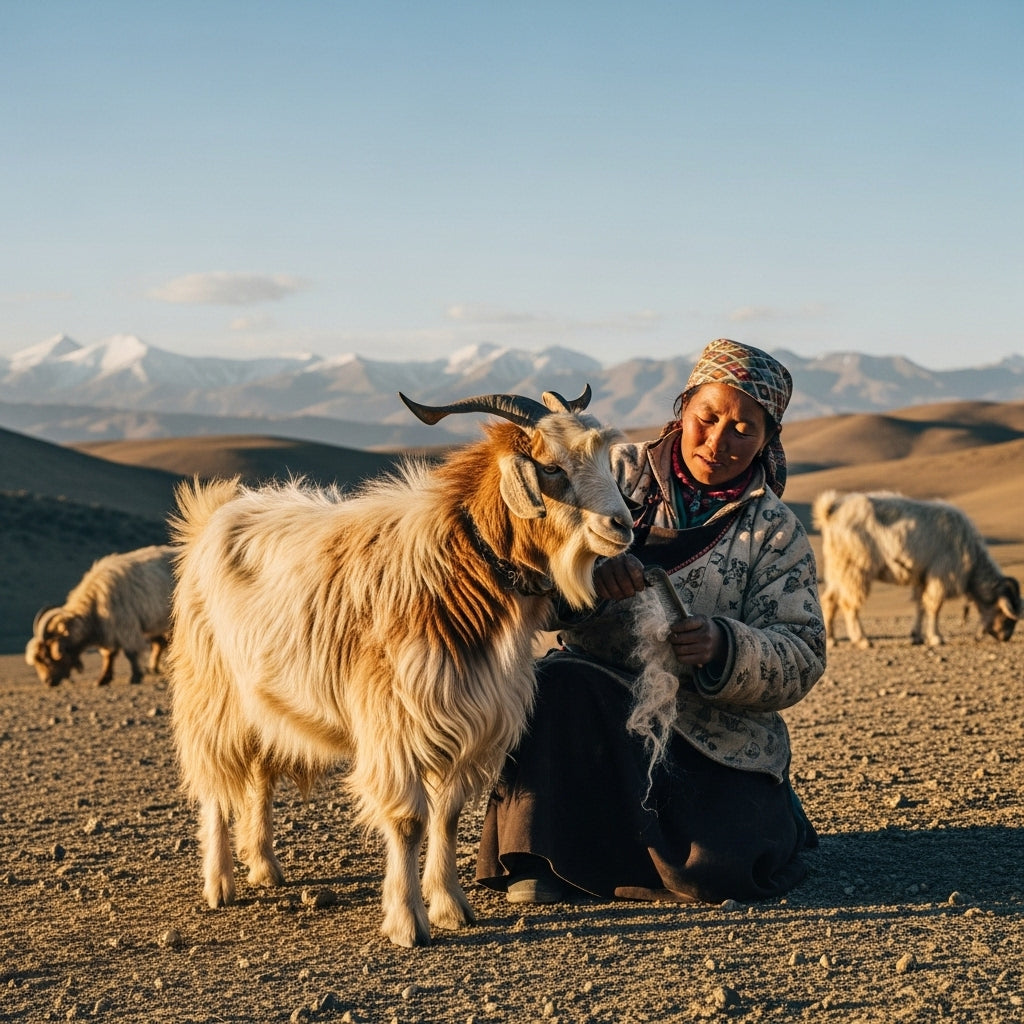
Step 1
Collection of Pashmina
In early Spring, high in the Himalayas of Ladakh in the Kashmir region, the Changthangi goats begin to moult their fine undercoat. Rather than shearing, herders gently comb the goats during this natural moult, carefully drawing out the downy fibres by hand. This slow, tender process not only ensures the well-being of the animal but also preserves the pristine softness of the fibres that become true Pashmina.
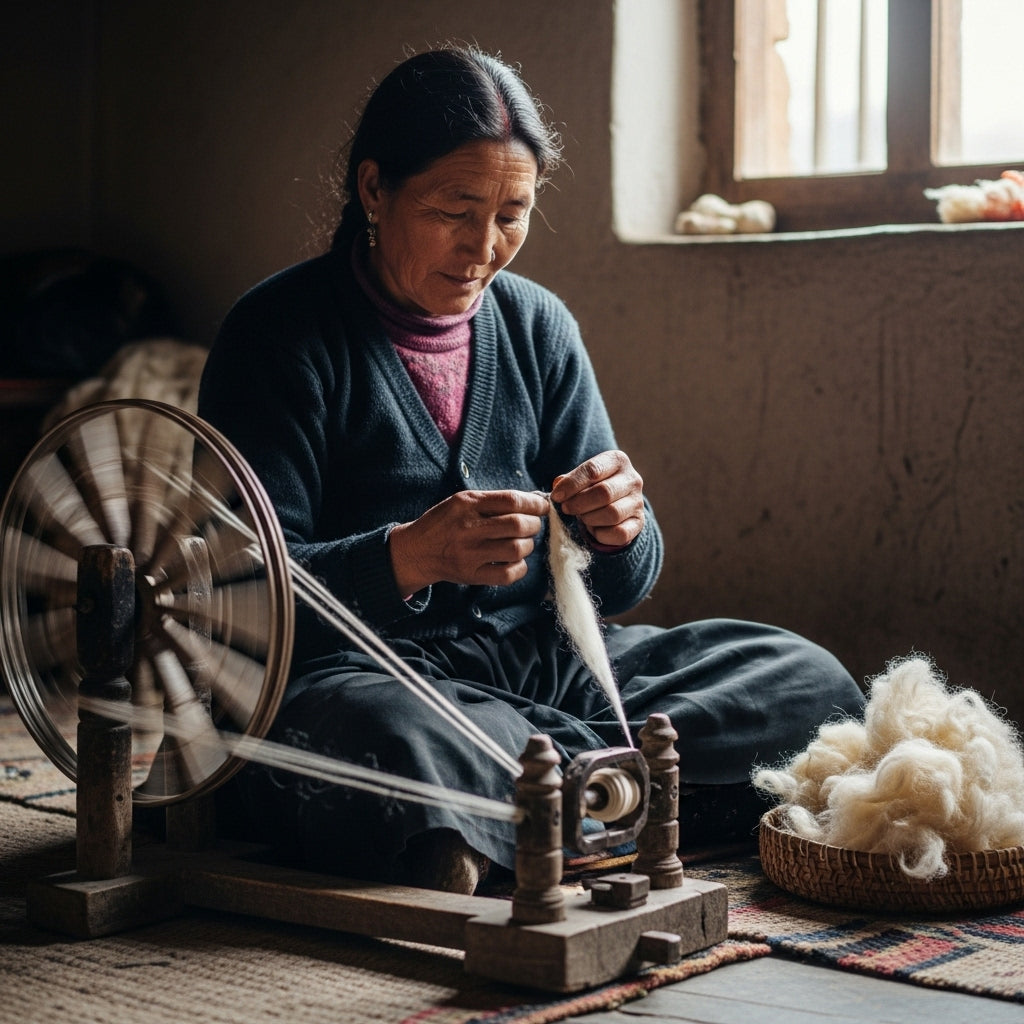
Step 2
Spinning
Once collected, the raw fibres are cleaned and hand-spun by local women artisans using a traditional wooden spinning wheel (yinder). This delicate process transforms fragile threads into strong, continuous yarn, often done in quiet, rhythmic motion passed down through generations.
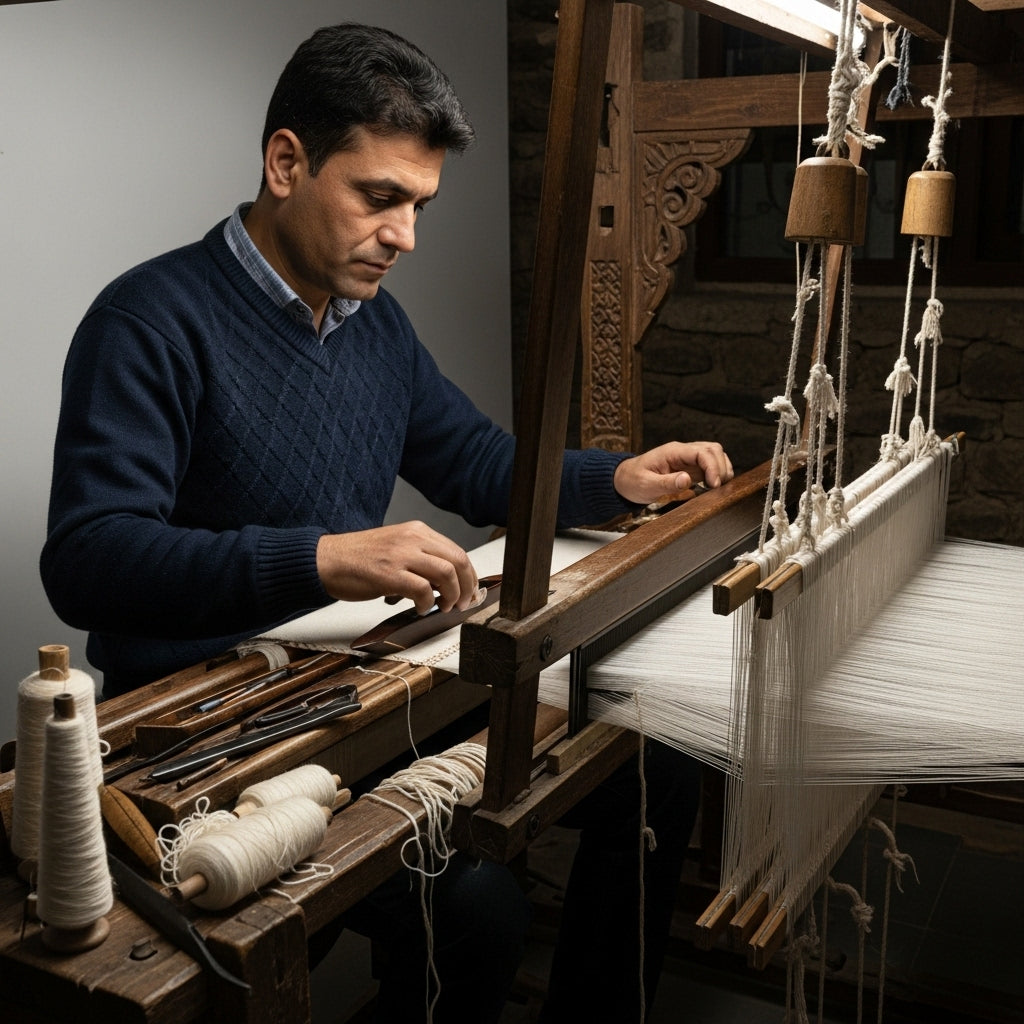
Step 3
Weaving
The spun yarn is then entrusted to master artisans who work on wooden handlooms. Each shawl is woven with precision, requiring immense patience. Depending on the design, it can take weeks or even months to produce a single flawless base fabric.
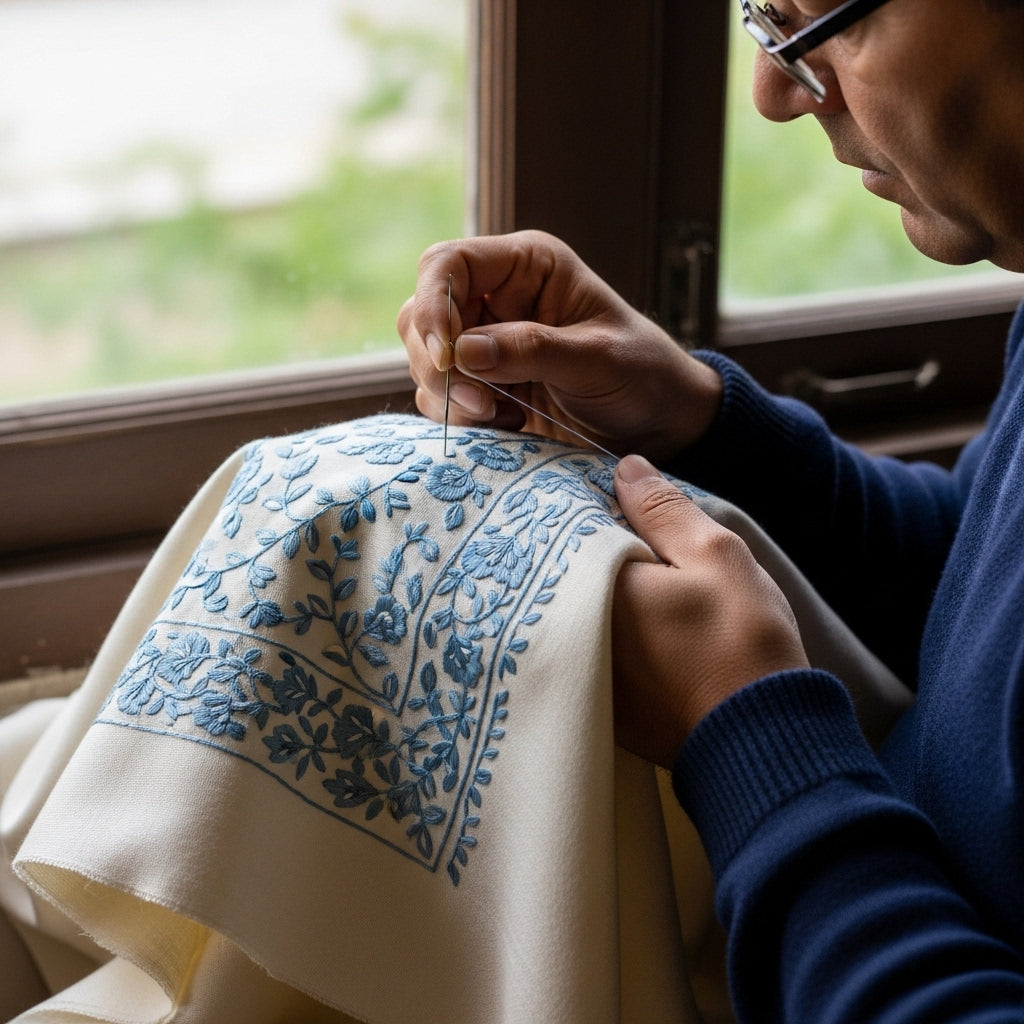
Step 4
Embroidery
Some Pashminas are left pure in their simplicity, while others are elevated further with intricate hand-embroidery. Using techniques such as Sozni (fine needlework), Tilla (gold or silver threadwork), or Kalamkari (hand-painted art), artisans add motifs that can take additional months—turning the shawl into a true heirloom piece.
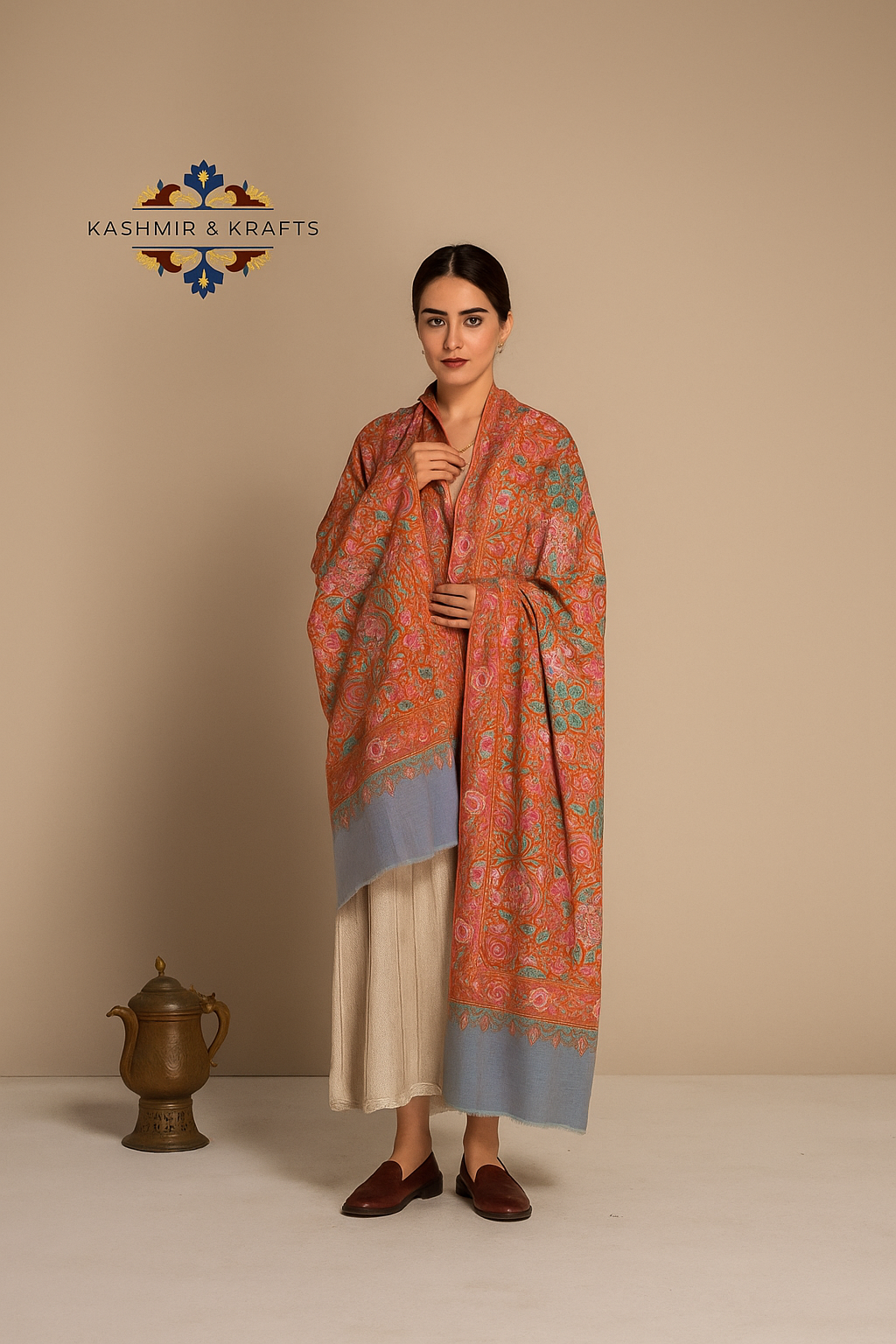
Step 5
Observe the beauty
What began as the softest down combed from Himalayan goats now stands complete—a handwoven Pashmina shawl. Each piece is museum-worthy, the result of months or even years of devotion, and remains a true one-of-one. Draped in its entirety, it carries the story of heritage and craftsmanship, transforming patience, precision, and artistry into timeless elegance.
